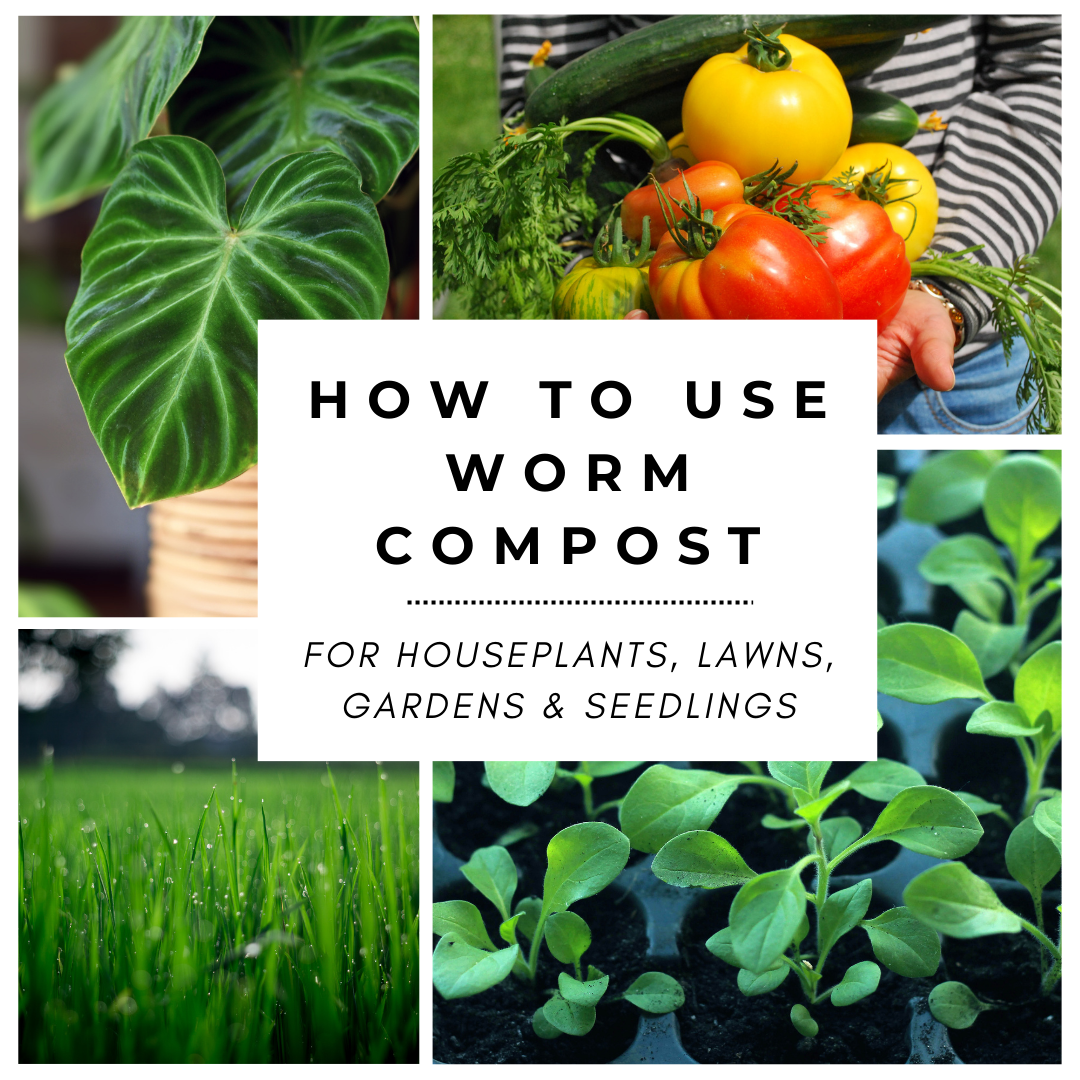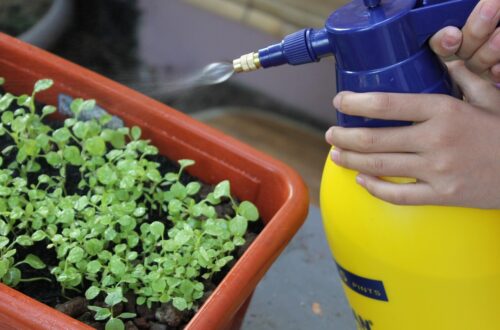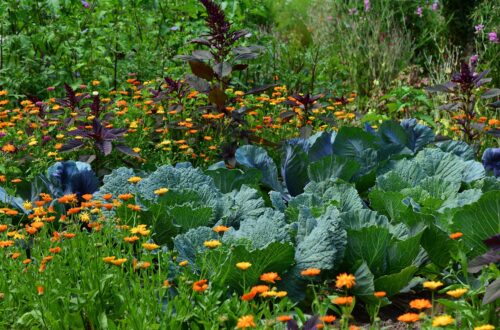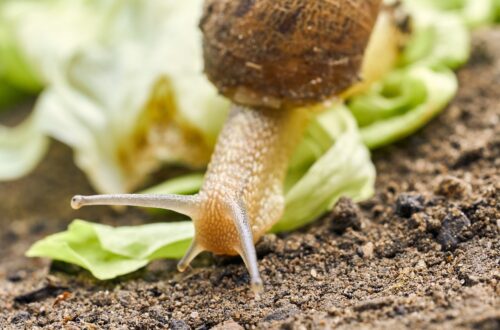Want to use worm castings for heathier plants and a larger garden harvest? These tips will help!
Composting indoors with a vermicompost bin is a great solution for small space and urban gardeners who don’t have room for a large outdoor compost pile. But what do you do with all of those pure worm castings after you’ve harvested them from your indoor worm bin?
In this guide, I’ll walk you through the different ways that you can use worm casting fertilizer on outdoor and indoor plants. So roll up your sleeves and let’s get to work transforming homemade vermicast compost into “black gold” for houseplants and gardens too!
Affiliate disclosure: As an Amazon Associate, I may earn commissions from qualifying purchases.
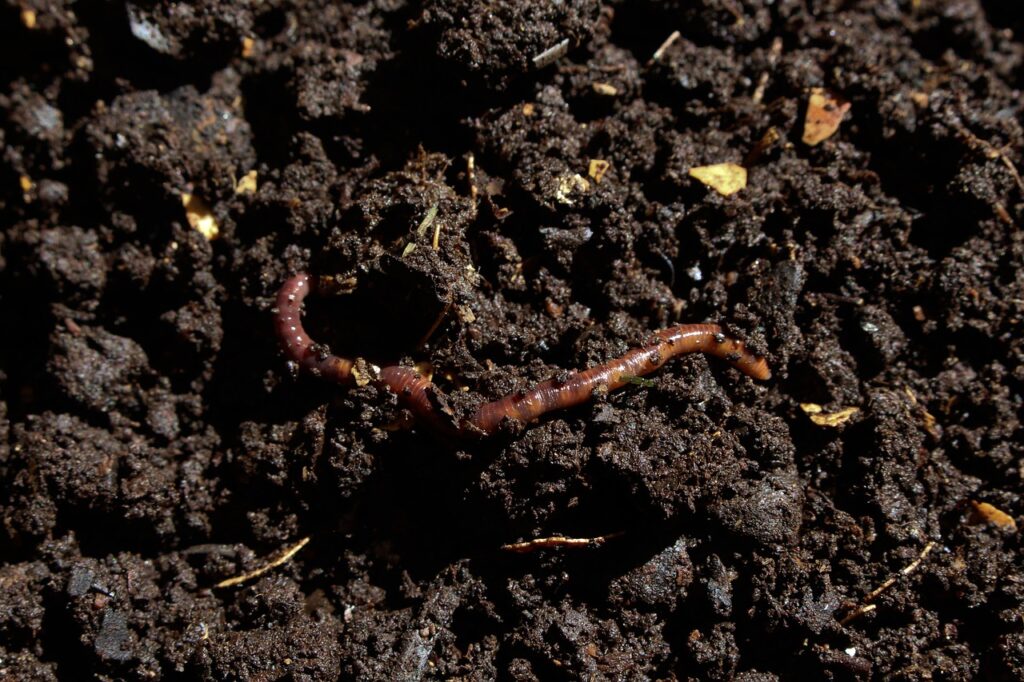
What is Worm Casting Compost?
Wormcasts are what composting worms leave behind after they’ve gobbled up the kitchen scraps and food waste in your worm compost bin. Castings are also sometimes called vermicompost and (more indelicately) “worm poop”… but all of those terms refer to the same thing!
Worm castings are packed with nutrients and trace minerals that indoor and outdoor plants can easily absorb through their roots. Solid, dry castings can be used like compost. However, castings can also be brewed in water to make a liquid worm castings fertilizer or “worm tea,” which can be used as a soil drench or foliar spray.
If you’re into DIY, you can make you own worm bin and harvest worm casting soil right at home. However, if you don’t want to bother with composting worms, you can also find worm castings for sale online!
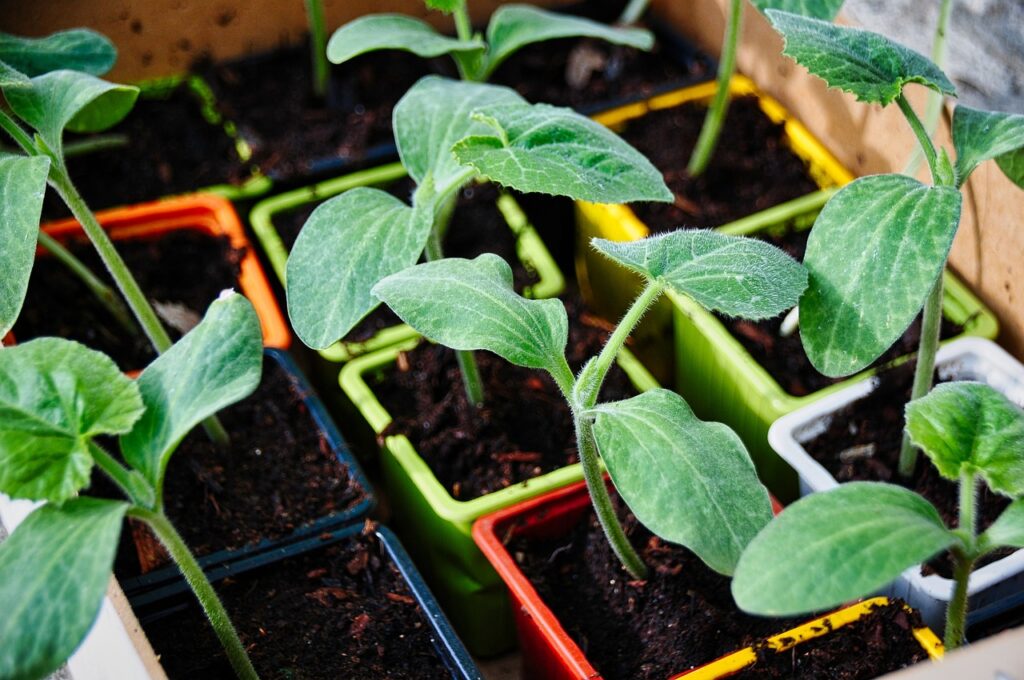
What Are the Benefits of Worm Cast Compost?
Whether you buy worm castings or harvest your own worm fertiliser from an indoor worm bin, worm castings are some of the best soil amendments to use on houseplants, vegetables, flowers and fruit. Many studies have found that castings offer unique benefits to plants at all stages of their growth. And, best of all, worm compost is all natural and safe to use in organic gardens!
Some of the main reasons why you may want to use worm fertilizer include:
- It’s packed with the nutrients and trace minerals that plants crave. Compared to most chemical fertilizers, worm castings break down much slower, which means they provide a slow release of nutrients to plants and they’re less prone to leaching. In addition to calcium, iron and sulfur, there is also nitrogen, phosphorous and potassium in worm castings (NPK 5-5-3)!
- It boosts seed germination rates. Worm casts are particularly beneficial to seedlings, although they enhance the growth of full sized plants too. One study found that using worm castings in seed starting mixes actually increased the germination rate of cucumber seeds by 20%.
- It reduces damping off and other seedling diseases. Worm casts contain beneficial microbes, which can boost the health of plants and seedlings. In fact, using worm castings in seed starting mixes has been shown to reduce the incidence of damping off and some other fungal diseases.
- It improves soil structure. Mixing vermicompost into garden soil can improve heavy clay and overly sandy earth and help garden beds drain better. Plus, worm castings hold onto water, so plant roots won’t dry out as quickly!
- It enhances fruiting and flowering. Using worm castings on flowering plants can increase bloom rate and enhance the size and color of flowers. On top of that, worm casts can boost vegetable and fruit yields by up to 200%!
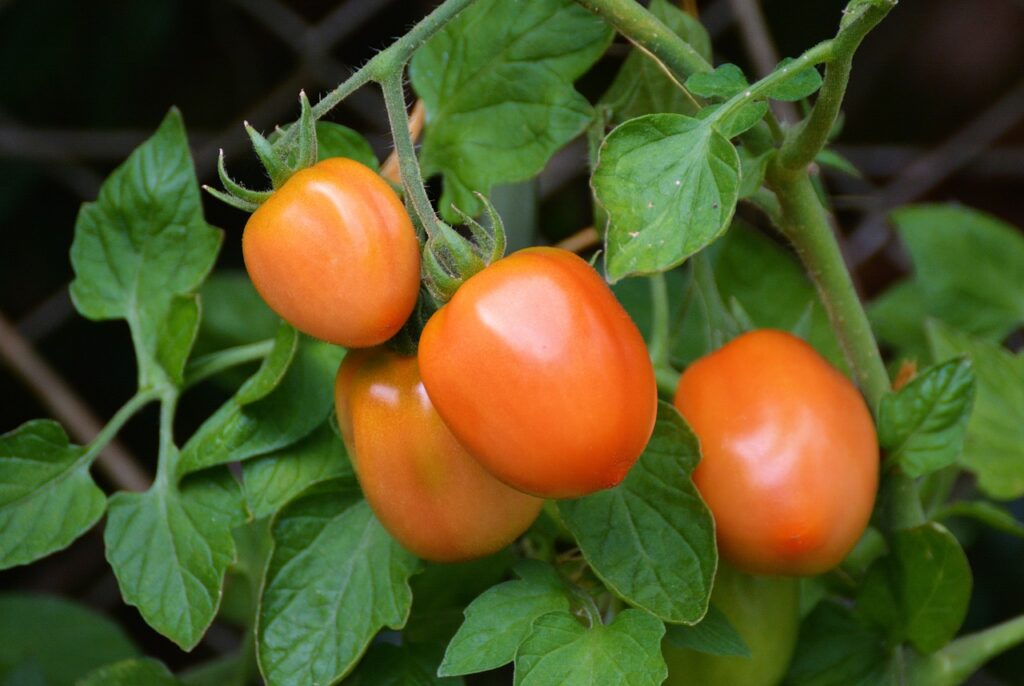
How to Use Worm Castings in Garden Beds
Worm fertilizer is incredibly versatile: use worm castings for tomato plants and other vegetables, herbs, fruit trees or ornamentals… it’s up to you! Depending on your garden size and the plants you’re growing, worm castings can be applied as a soil amendment to new or established gardens or you can use castings as a side dressing or top dressing around individual plants.
To use worm castings as a soil amendment, spread 1 to 3” of vermicompost over your garden beds at the beginning of the season and then mix it into the top few inches of soil with a shovel or pitchfork and water well. For even better results, apply castings along with a healthy dose of compost!
To use worm castings as a side or top dressing, simply apply a handful or two of worm castings around the base of individual plants and work the castings into the top 1” of soil with your fingers or a small hand rake. After applying, water your plants deeply to help the castings become incorporated into the earth. Side dressings and top dressings can be applied 2 to 3 times per year in spring, early summer and early fall.
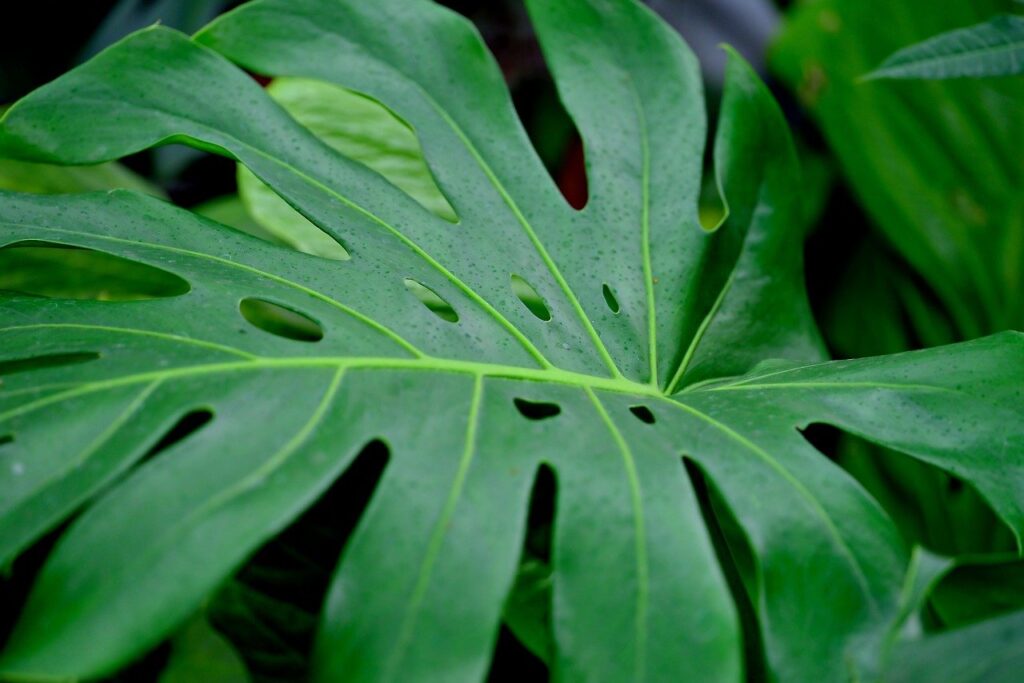
How to Use Worm Castings for Houseplants
While vermicompost is super handy for outdoor edible and flowering plants, castings can also improve the growth of pothos, rubber trees and other houseplant favorites.
To boost the growth of new houseplants, mix worm castings into your store-bought potting mix when repotting new plants. You can use up to 20% worm castings or 1 part worm castings for every 5 parts of potting mix.
For established houseplants, apply ½ to 1” of worm castings over the soil line and mix the castings into the top 1” of soil with your fingers. Repeat this process every 2 to 3 months from spring through fall for healthier plants and lush leafy growth!
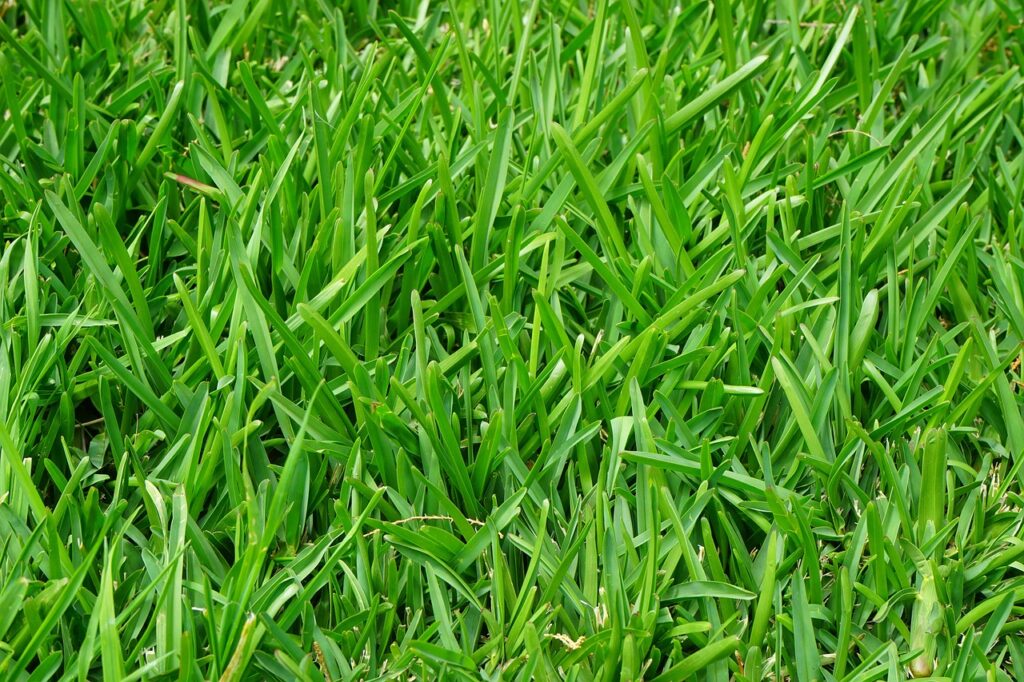
How to Use Worm Casings for Lawn Health
If you have a turf grass lawn and want to keep it green without chemical fertilizers, apply some worm castings with a broadcast spreader!
For a healthier lawn, worm castings can be applied at a rate of 20 to 25 pounds of worm castings for every 100 square feet of grass. After the castings are spread out, rake them in and then water the area so that the worm casting nutrients can trickle down to the grass roots below!
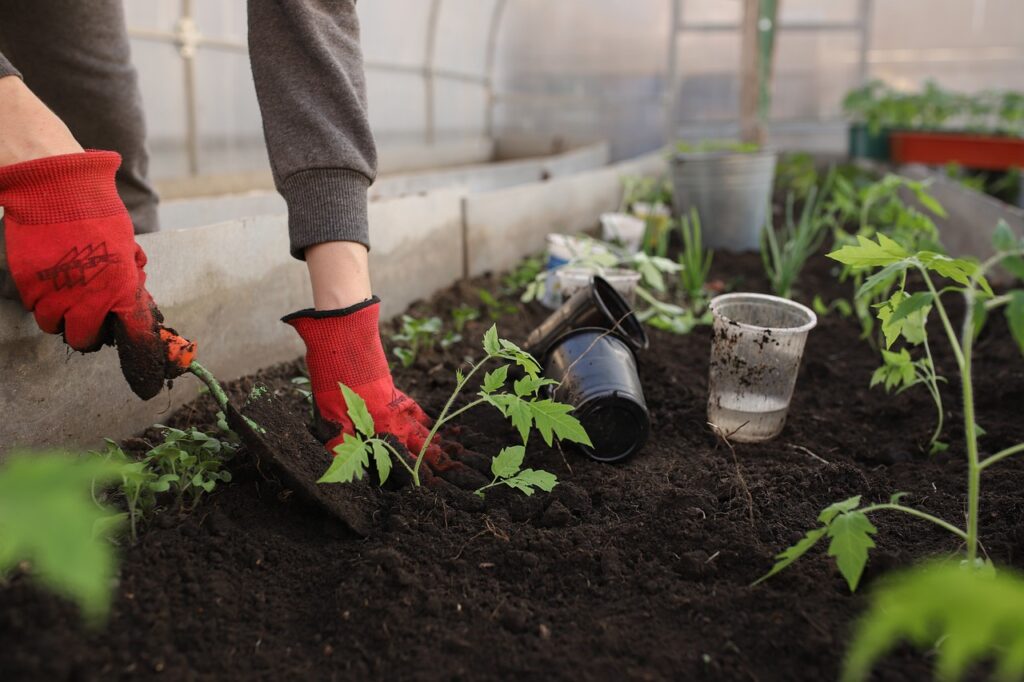
How to Use Worm Castings for Seeds and Transplants
While worm castings are certainly useful for established plants, worm fertilizer is even more beneficial for seedlings. And it makes a wonderful seed starting mix too!
To create your own seed starting mix with worm castings, mix together 4 parts compost, 2 parts worm castings, 1 part perlite and 2 parts rehydrated coconut coir. When it comes time to plant seeds, simply layer the seeding starting mix in pots or seedling trays and plant away!
To use worm castings on transplants, add a handful of vermicompost to each planting hole or line planting holes with about 1” of castings. Locate your transplant in the planting hole, backfill the rest of the hole with soil and then water. Worm castings help transplants root and leaf out faster, but your transplanted veggies and flowers will be even happier if you side dress them with more worm castings throughout the growing season.
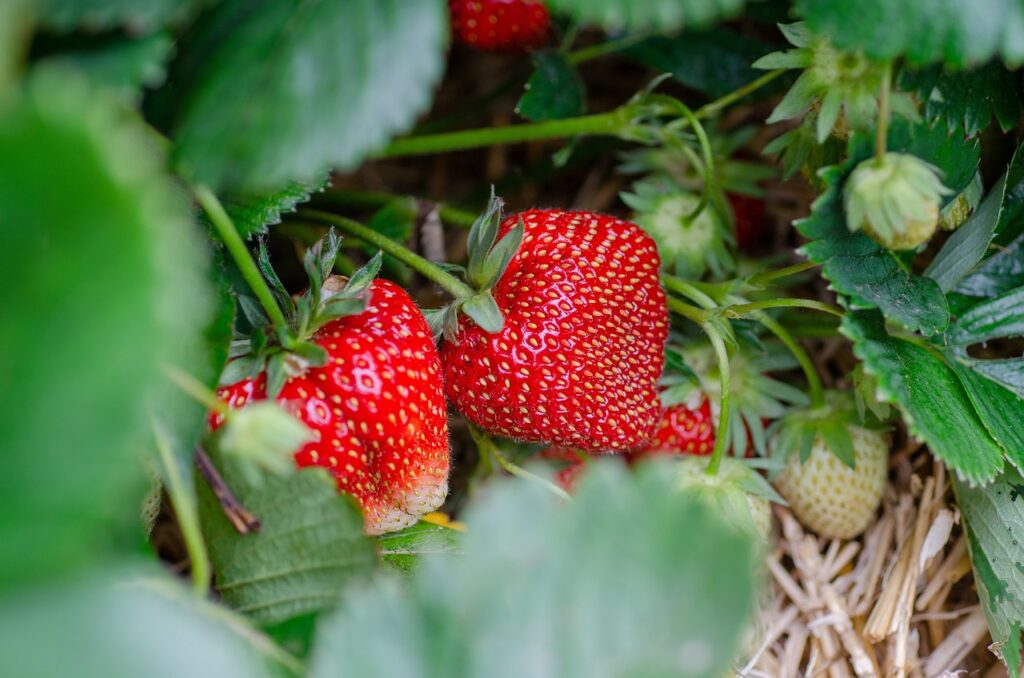
Frequently Asked Questions About Using Worm Castings for Plants
Are worm castings good for all plants?
Yes! All plants can benefit from worm castings, including fruit trees, flowers, herbs, vegetables and houseplants.
Can you give plants too much worm castings?
Not really. Unlike chemical fertilizers and some livestock manure, worm castings won’t burn plant leaves or roots, although excess worm castings may affect how pots and garden beds drain. A good rule of thumb is to use about 20% worm castings and 80% soil or potting mix.
Can I just use worm castings instead of fertilizer?
No. Worm castings aren’t a complete fertilizer and they don’t contain all of the nutrients plants need. The best solution is to use worm castings along with compost and organic fertilizer, which will provide a well-balanced dose of nutrients for plants and seedlings.
